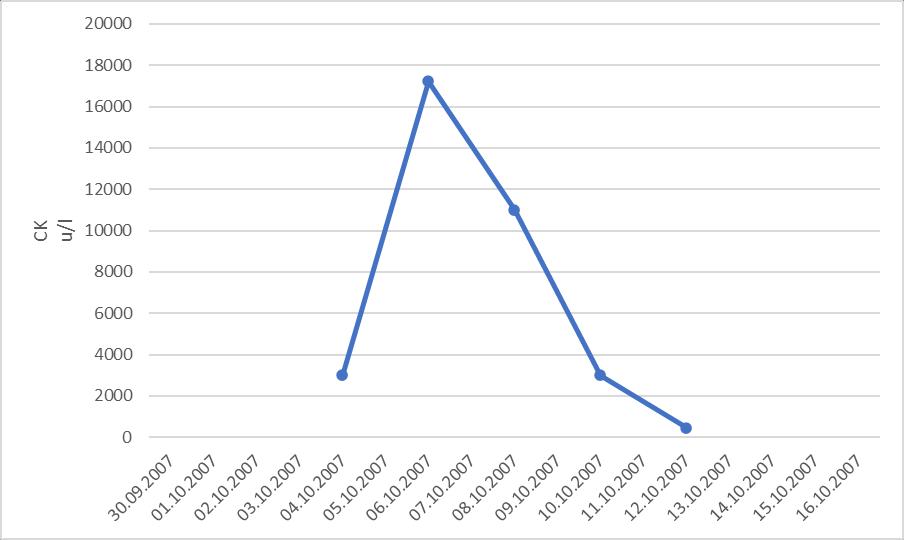
2 minute read
Supplement
from Extremely Elevated Levels of CK in a Male Adolescent Caused by Consummation of Dietary Supplement Co
by acquire info
Journal of Case Reports and Medical History
Discussion
Advertisement
The measured levels of CK in this case have exceeded values
that were usually measured, in healthy athletes. Some possible causes are discussed: CK - levels exceeding 1000 U/l can be caused by muscular dystrophy. Also, the age of 14 years would match a muscular dystrophy type Becker Kiener, but no typical symptoms like difficulties when running or ascending stairs were found in this patient. On top of that, the patient shows an aboveaverage muscular strength. CK - levels exceeding 3000 U/l up to 157700 U/l were found in sportsmen, especially when they acutely increased their physical activity. Any recent use of alcohol or dietary supplement was denied by these sportsmen [2]. Also, the consumption of wild mushrooms like tricholoma equestre can cause rhabdomyolysis with CK - levels up to 226067 U/l in woman and 34786 U/l in men [3]. There are also reported cases of postinfectional severe rhabdomyolysis possibly associated with a CMV infection [4].
A singular link between his consumption of dietary supplements, work out and highly elevated CK - levels could be found: After stopping his work out and consumption of dietary supplements, the CK - levels normalized. When he did his work out without consumption of any supplements his CK- levels were only slightly elevated.
A singular link between his consumption of dietary supplements, work out and highly elevated CK - levels could be found:
After stopping his work out and consumption of dietary supplements, the CK - levels normalized. When he did his work out without consumption of any supplements his CK- levels were only slightly elevated. Thus, it appears that substances containing creatine, which are being primarily consumed to gain muscle mass, are the main cause of the period of extremely elevated levels of transaminases and CK in this case.
Creatine monohydrate can be acquired in „health “stores and in fitness centres without any prescription. Due to the lack of knowledge of ling time effects, creatine monohydrate should only be supplied if strictly indicated and under monitoring of renal/hepatic function and side effects.
Reference
1 Poortmans JR, Francaux M. (2000) Adverse effects of creatine supplementation: fact or fiction? Sports Med. 30: 155-170.
2 Galvez, Rupber DO, Stacy, Jason MD, et al. (2008)
Exertional Rhabdomyolysis in Seven Division-1
Swimming Athletes. Clin J Sport Med. 18: 366-368. 3 Bedry R, Baudrimont I, Deffieux G, et al. (2001) Wildmushroom intoxication as a cause of rhabdomyolysis. N
Engl J Med. 345(11): 798-802. 4 Sato K, Yoneda M, Hayashi K. (2006) A steroidresponsive case of severe rhabdomyolysis associated with cytomegalovirus infection. Rinsho Shinkeigaku. 46: 312-316


